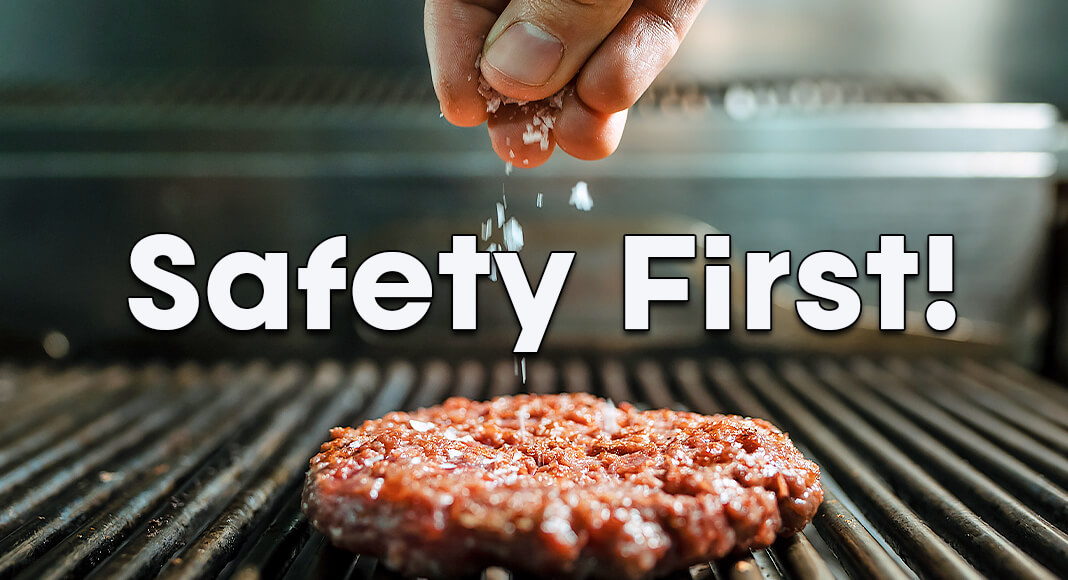
Mega Doctor News
Food poisoning peaks in the summer months when warmer temperatures cause foodborne germs to flourish. Follow these steps for a safe and enjoyable grilling season.
| What You Need to Know |
| When handling raw meat, chicken and other poultry, and seafood |
| Separate it from other food |
| Refrigerate it before grilling |
| Wash your hands before and after handling it |
| Make sure its juices do not touch other food, utensils, and surfaces |
| Use a food thermometer to ensure it is cooked to a safe internal temperature |
| Refrigerate leftovers within 2 hours of cooking |
Separate
When shopping, pick up meat, chicken and other poultry, and seafood last, right before checkout. Separate them from other food in your shopping cart and grocery bags. To avoid cross-contamination, put packages of raw meat and poultry into individual plastic bags.
Chill
Keep meat, poultry, and seafood refrigerated until ready to grill. When transporting, keep at 40°F or below in an insulated cooler.
Thaw & Marinate
Harmful germs can multiply quickly at room temperature. Thaw food safely in the refrigerator, cold water, or microwave. Always marinate food in the refrigerator no matter what kind of marinade you’re using. Never thaw or marinate meat, poultry, or seafood on the counter.
Clean
Wash your hands with soap before and after handling raw meat, poultry, and seafood. Wash work surfaces and utensils with hot, soapy water before and after cooking.
Check Your Grill and Tools
Use a moist cloth or paper towel to clean the grill surface before cooking. If you use a wire bristle brush, thoroughly inspect the grill’s surface before cooking. Wire bristles from grill cleaning brushes may dislodge and stick into food on the grill.
Don’t Cross-Contaminate
Throw out marinades and sauces that have touched raw meat juices, which can spread germs to cooked foods. Use clean utensils and a clean plate to remove cooked meat from the grill. Do not place cooked meat back on a plate that held raw meat.
Cook
Use a food thermometer to ensure meat is cooked hot enough to kill harmful germs. When smoking, keep temperatures inside the smoker at 225°F to 300°F to keep meat at a safe internal temperature while it cooks.
When grilling, cook to:
- 145°F—whole cuts of beef, pork, lamb, and veal (then allow the meat to rest for 3 minutes before carving or eating)
- 145°F—fish (or cook until the flesh is opaque and separates easily with a fork)
- 160°F—hamburgers and other ground beef
- 165°F—all poultry and pre-cooked meats, like hot dogs
After grilling, keep food hot:
- 140°F or warmer—until it’s served
Refrigerate
Divide leftovers into small portions and place in covered, shallow containers. Put in freezer or fridge within 2 hours of cooking (1 hour if above 90°F outside). It is okay to put small portions of hot food in the refrigerator since they will chill faster.
Information Source: CDC











